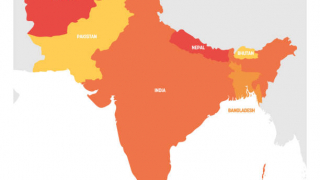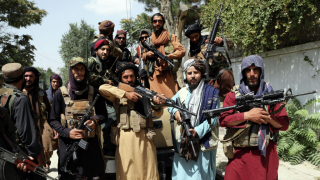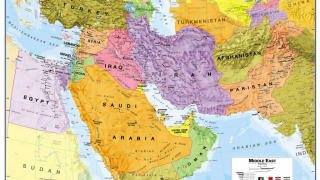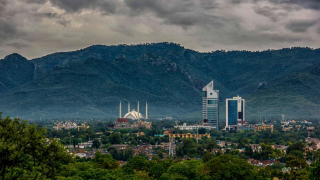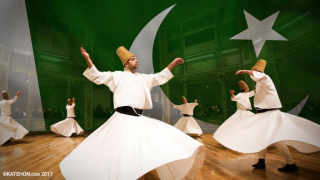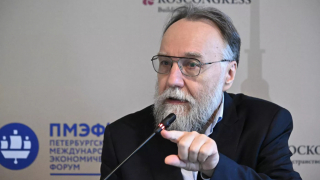Addendum to the Kashmir Soildarity Day
16.02.2020
Addendum to the Kashmir Soildarity Day on February 5, 2020 and the unilateral lifting of the special status of Jammu and Kashmir
Kashmir Solidarity Day, also known as "Youm-e-Yakhjehti-e-Kashmir", has been celebrated in Pakistan since 1990 as a day of protesting Indian control over part of Kashmir. It also took place on February 5 this year.
The Modi government, its Bharatiya Janata Party (BJP), lifted the special status of Jammu and Kashmir on August 5, 2019 and sent an additional 35,000 soldiers to the already well-armed area. Since December 2018, Jammu and Kashmir have been subject to the presidential rule with the proviso that Articles 370 and 35 A can be deleted, and the region, the region previously endowed with autonomous rights under Article 370 under Indian occupation, has the right to decide on all matters with its own constitution and its own Flag and the exception of defense and foreign relations to incorporate. Instead of letting parliament vote on it, he had his decision to delete two relevant articles in the Indian constitution enforced by President Ram Nath Kovind.
The announcement put senior politicians in Kashmir under house arrest, closed schools and shops, and curfewed the entire population. In addition, all lines were cut - telephone, cell phone network, Internet, television and radio no longer work, but there were riots.
The government of Jammu and Kashmir called on pilgrims and holidaymakers to leave the region. Pakistan Responded by Announcing the Expulsion of the Indian Ambassador, Limiting Diplomatic Relations with India and Calling on the International Court of Justice It is not only a violation of the Indian Constitution, but also a clear abuse of the United Nations Security Council resolution ( UNSC), which Kashmir had defined as a controversial area. The Congress party plans to appeal to the Constitutional Court over the controversial lifting. Article 35A was designed in 1954 as a presidential decree to empower state law to define permanent residents of the state and their special rights and privileges; Indian nationals from other states could not acquire land or property in J&K, take up work or take advantage of other government benefits such as higher education and health care. (Source: Konrad Adenauer Foundation)
BJP, the political arm of the Hindu terrorist organization RSS, has caused Articles 370 and 35A to be repealed. The RSS, which inspired the Norwegian white supremacist Andreas Breivik, among other things, for his attack in Norway - he killed 77 people in 2011 - admired in his manifesto the transformation of society in India into a purely Hindu one. The RSS was founded in 1925 as a paramilitary organization when Hitler published "Mein Kampf". With her attacks on Muslims and under the influence of National Socialism, she developed into a fascist organization. BJP unlawfully deleted Article 370 from the Indian Constitution, which gave Indian-occupied Kashmir a special and autonomous status.
Pakistan, which also claims the region, condemned the move as "illegal". The Pakistani Ministry of Foreign Affairs warned India of "unilateral steps" to change the internationally controversial status of Kashmir. "As a party to this international conflict, Pakistan will use all possible options to counter these illegal steps," said the ministry in Islamabad.
Both India and Pakistan claimed the entire Siachen glacier. Fighting has been going on there since 1984. This fight is actually not about the glacier, but about access to the southern Karakorum Pass. India had lost part of the state of Jammu and Kashmir to China in the war between 1959 and 1962. This is why the Karakoram Pass became so important because it became an important trade link between Kashmir and China. The strategically and economically important CPEC, flagship of the New Silk Roads, runs through Gilgit Baltistan.
Central government accuses reporters without borders: "There is clearly an attack on Kashmir's freedom of expression by the BJP's [ruling] Hindu supremacists," said journalist and political commentator Gowhar Geelani, accusing her of controlling all news about the region. "Kashmir has been turned into an open prison. This information black hole is the longest e-curfew in history and makes journalism almost impossible." The right to information is now considered a fundamental right, "said the Early Times correspondent Jehangir.
"It is sad that the Kashmiri are being denied this right". The UN accuses Indian troops of disproportionate violence.
Kashmiris from the Indian part have been reporting this for decades; Indian soldiers acted like occupiers. Again and again they would arbitrarily use violence against locals. The UN and several human rights organizations released reports this year accusing Indian troops of disproportionate violence. They would torture, kidnap, rape, and shoot people with bullets, leading to the blindness of hundreds of people this year alone. Every sixth Kashmiri has been tortured before in his life, according to "Doctors Without Borders" 49 percent of the population suffer from post-traumatic stress disorder. (Source: Spiegelartikel https://www.spiegel.de/politik/ausland/kaschmir-konflikt-in- India-volk-unter-arrest-a-1281830.html)
Why is the international community of states silent on the issue of lifting special status?
The raising of the cashmere question to the international stage seems to me to be the real problem.
Pakistan and India cannot agree on this alone, but the superpowers with their own strategic and above all economic interests for this large emerging country and the difficult global situation in general, which can quickly turn the conflict into a proxy war, are the real obstacle to coping this issue. In addition, Pakistan and India are two nuclear powers, taking sides for the oppressed and battered population could very quickly degenerate into a war.
The majority of Democrats in the United States Congress are on the Indian side. President Trump is also strategically turning away from Pakistan towards a new Asian Cold War front against China and his project on the new Silk Road, which also includes Pakistan. He offers India only a mediator role, describes the lifting as an internal Indian matter. On the other hand, the US still uses Pakistan for its "war on terror" and for its strategic interests.
Likewise, the heightened tensions between the United States and Iran play a significant role in the possible impact across the entire region of South Asia. Cashmere plays a key role in the international constellation. Due to the Brzezinski Policy, the United States is still in confrontation with Russia in terms of the spheres of influence in India and Pakistan, as well as the third emerging superpower China, with which India maintains relations in many areas, and the strategically important economic CPEC through Gilgit Baltistan to Gwadar moves to Balochistan. Russia's efforts to act as mediators have so far not been recognized by the United States. The Saudis rejected Imran Khan's request to discuss the Kashmir question in an international forum. They are also approaching India for economic reasons.
This stalemate does not seem to be politically resolvable so far. The UN Secretary General, Antonio Gueterres, will visit Pakistan from February 15-19 to speak to Imran Khan. Pakistan's request to the International Court of Justice to have the special status revoked will take some time, and it is doubtful whether the judges can make an objective decision, but whether the judgment can then be enforced effectively against India.
The dilemma of the majority Muslim population remains unsolved for the time being. Once again, the international community is failing with urgent problems that affect a population. One gets the impression that human rights and the rule of law are falling victim to more and more aggressive imperial goals without any effective action being taken from outside.
The situation of the people in Kashmir is alarming. As a minority in their own country, they are threatened by Hindus from India. Since Indians can now buy houses and land and there is no work for the local Kashmiri. President Modi drives Hinduism by all means. It remains to be seen whether Mr Gueterres can mediate the matter. So far, states have given little attention to the United Nations' admonitions and recommendations.


